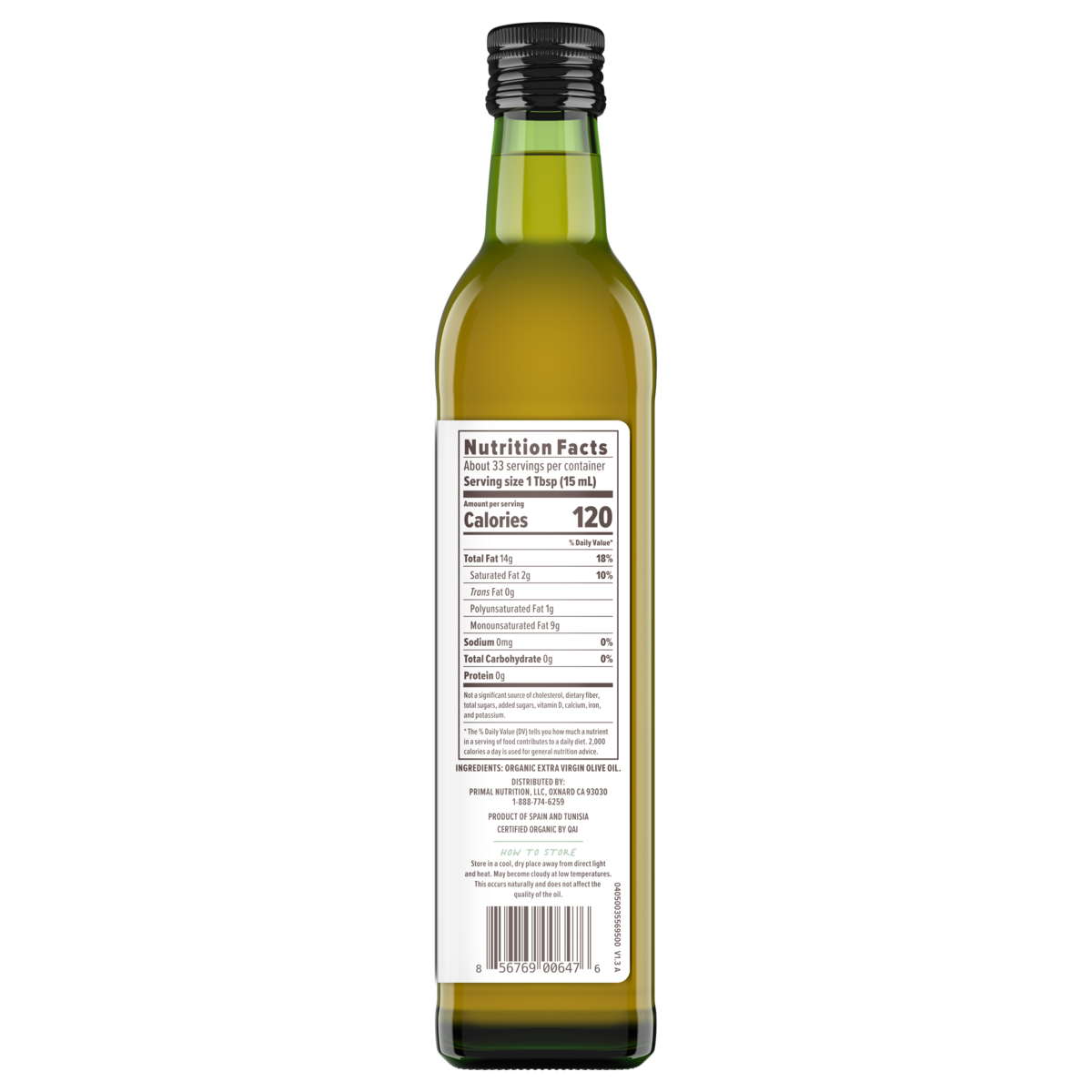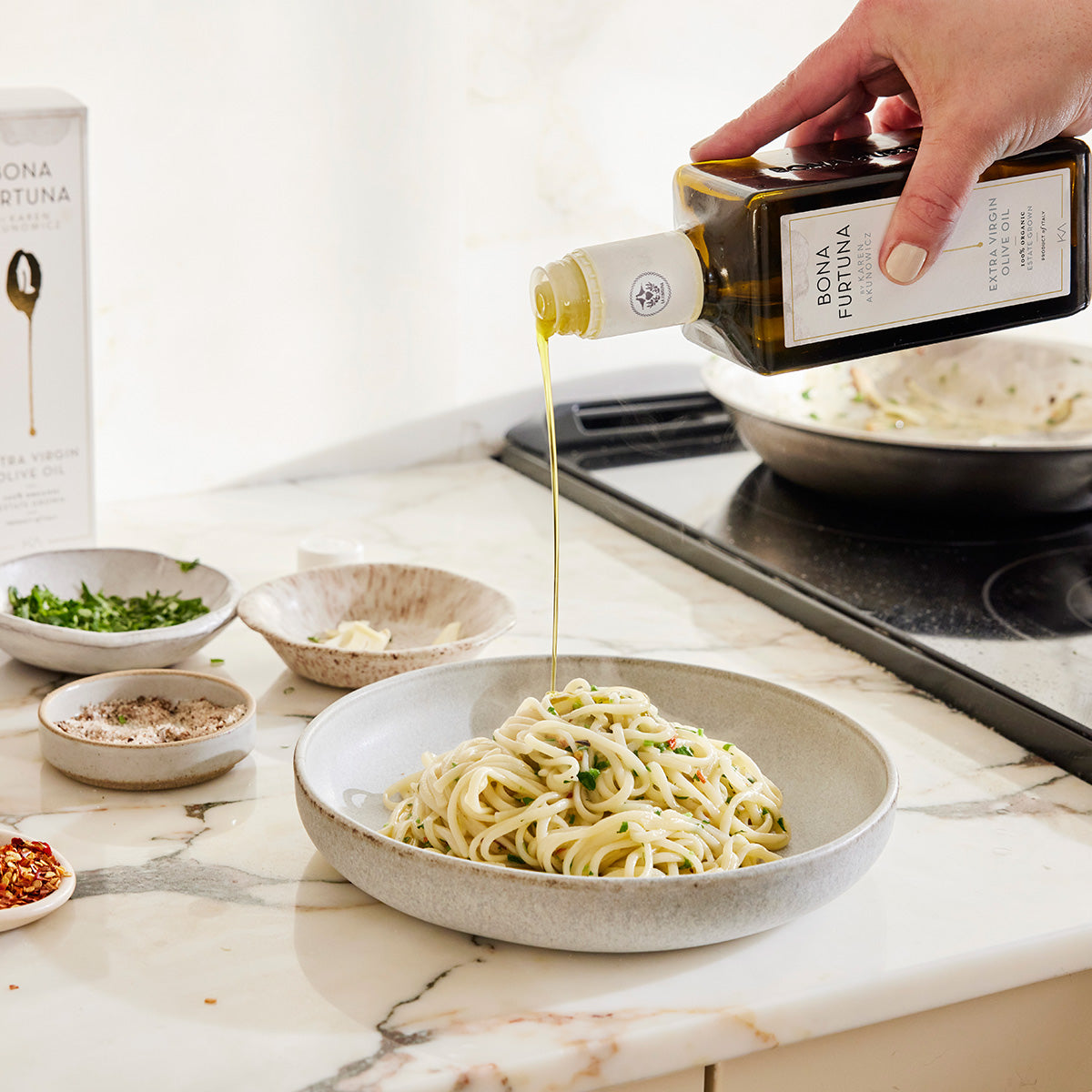Checking Out the Different Kinds Of Olive Oil and Their Usages, Consisting Of Extra Virgin Olive Oil
The exploration of olive oil includes a varied variety of kinds, each offering unique flavors and cooking applications. Additional virgin olive oil, renowned for its superior top quality and health and wellness benefits, offers as a staple in numerous cooking areas, yet it is just one facet of this complex ingredient. extra virgin olive oil benefits. Other selections, such as pure and polished olive oils, likewise warrant interest for their one-of-a-kind buildings and uses. Recognizing these differences can significantly affect both food preparation methods and taste profiles. What, then, should one take into consideration when choosing the appropriate olive oil for a particular cooking endeavor?
What Is Olive Oil?
Acquired from the fruit of the olive tree, olive oil is a staple in Mediterranean cuisine and an essential active ingredient in numerous culinary applications. This versatile oil is created by pushing entire olives, resulting in a liquid that varies in taste, aroma, and color depending upon the sort of olives utilized, the area of farming, and the removal procedure. Olive oil is predominantly composed of monounsaturated fats, particularly oleic acid, which is known for its prospective health and wellness benefits, including anti-inflammatory buildings and cardio assistance.
In enhancement to its cooking usages, olive oil has a lengthy background of application in standard medication and skin care, owing to its abundant antioxidant material (extra virgin olive oil benefits). The oil is usually made use of in dressings, marinades, and for cooking approaches such as sautéing and roasting. Its unique flavor account can enhance the taste of numerous dishes, making it a crucial active ingredient for both home chefs and specialist cooks
Moreover, olive oil is celebrated for its function in the Mediterranean diet, which is linked with various health advantages. As recognition of these benefits grows, olive oil remains to obtain appeal worldwide as an essential component of a healthy way of living.
Kinds of Olive Oil
Comprehending the various kinds of olive oil is important for both cooking lovers and health-conscious consumers. Olive oil is classified largely based on its removal technique and top quality, which substantially affects its flavor, health and wellness, and aroma benefits.

Light olive oil, despite its name, describes a lighter taste and not lower calories. It is perfect for those seeking an extra refined taste in dressings and marinades. In addition, there are flavored olive oils infused with natural herbs, flavors, or citrus, which can enhance recipes without the demand for extra seasoning.
Each kind of olive oil offers certain culinary purposes, and understanding these differences allows consumers to make informed options that align with their food preparation styles and health goals.
Additional Virgin Olive Oil
Extra virgin olive oil (EVOO) is extensively considered as the finest quality olive oil offered, well known for its abundant flavor and countless health and wellness benefits. To be categorized as extra virgin, the oil needs to be produced from fresh olives utilizing mechanical procedures, without making use of solvents or excessive warmth. This meticulous approach preserves the oil's all-natural tastes, antioxidants, and healthy and balanced fats, resulting in an item with a reduced acidity degree of less than 0.8%.
EVOO is plentiful in monounsaturated fats, specifically oleic acid, which is linked to minimized inflammation and enhanced heart wellness. It also consists of polyphenols, effective antioxidants that may supply protective impacts versus persistent diseases. The taste account of EVOO can vary substantially relying on the olive variety and region of manufacturing, varying from fruity and grassy to robust and sharp.

Culinary Use Olive Oil

In food preparation, olive oil can be used for sautéing, toasting, and cooking, giving a much healthier choice to butter or various other fats. Its high smoke point makes it appropriate for various cooking methods, while its antioxidants contribute to a heart-healthy diet. Showering olive oil over ended up meals, such as pasta, fish, or barbequed vegetables, can elevate tastes and include a touch of style.
In addition, olive oil plays a substantial function in baking, where it can change typical fats in dishes for bread and pastries, imparting dampness and a refined taste. It also works as a base for instilled oils, allowing cooks to trying out flavors such as garlic, herbs, or chili, additionally broadening its culinary possibility. Generally, olive oil's flexibility makes it essential in both home and professional kitchens.
Choosing Top Quality Olive Oil
When selecting top quality olive oil, it's vital to think about numerous crucial factors that affect the product's fragrance, flavor, and wellness benefits. Choose for added virgin olive oil (EVOO), which is obtained from the initial cool pressing of olives and consists of imp source the highest possible levels of anti-oxidants and beneficial compounds. Try to find oils that are certified by acknowledged organizations, as this usually ensures adherence to rigid top quality standards.
The packaging likewise plays a substantial duty in preserving the oil's honesty. Choose oils kept in dark glass containers or tins to shield versus light degradation. Take note of the harvest day; fresher oils use premium flavor and dietary worth, so select products that are within 18 months of their harvest.
Be mindful of the preference; a good quality olive oil need to have an equilibrium of fruity, bitter, and sharp notes, suggesting its richness and intricacy. By reviewing these aspects, you can ensure you are choosing the best olive oil more for your cooking needs.
Conclusion
In recap, the expedition of various kinds of olive oil discloses unique characteristics and applications, with extra virgin olive oil standing for the pinnacle of quality as a result of its reduced acidity and high antioxidant web content. Its adaptability in culinary usages improves flavors in dressings, sauces, and sprinkles. Understanding the various ranges of olive oil allows for educated options in food preparation approaches, promoting much healthier methods while improving the general gastronomic experience. Quality selection continues to be important for optimal benefits.
Obtained from the fruit of the olive tree, olive oil is a staple in Mediterranean food and a key component in numerous culinary applications.The most typical kinds of olive oil include fine-tuned olive oil, pure olive oil, and light olive oil.Additional virgin olive oil (EVOO) is widely concerned as the highest possible quality olive oil available, renowned for its abundant flavor and various health and wellness advantages. Opt for additional virgin olive oil (EVOO), which is acquired from the first cold pressing of olives and consists of the highest possible levels of antioxidants and helpful substances.In summary, the exploration of various types of olive oil exposes distinctive features and applications, with extra virgin olive oil representing the pinnacle of quality due to its reduced level of acidity and high antioxidant content.
Comments on “Unlock the Hidden Extra Virgin Olive Oil Benefits for Weight Loss”